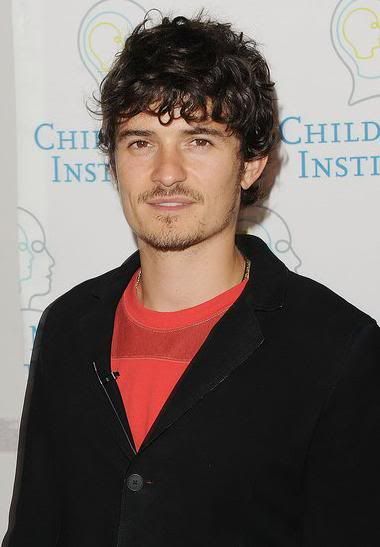
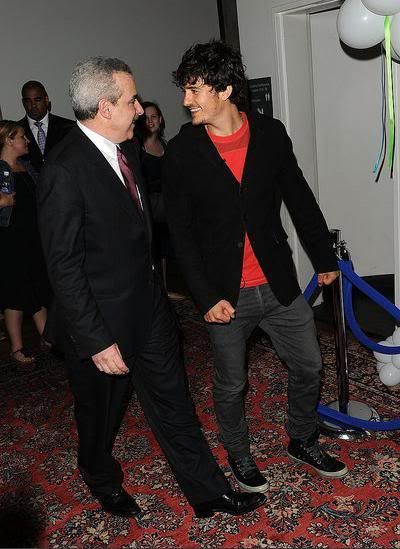
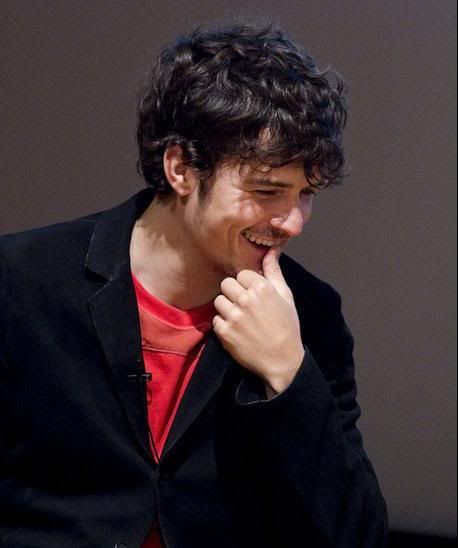
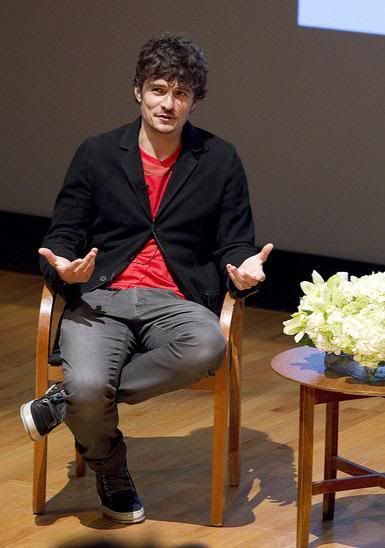
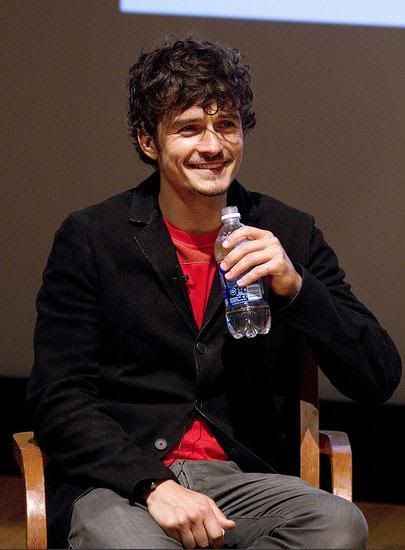
 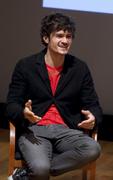 
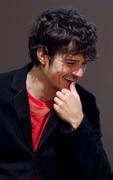  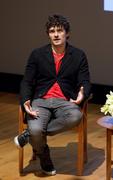
  
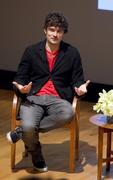 
KB的Patty把開花講話總結了,好像遲些會有視頻呢。
This was a very personal interview and quite different from anything else I have seen from Orlando. It was a multipurpose interview, as the institute also wanted publicity, and so was not strictly academic. But the conference theme was the relationship between dyslexia and creativity, and Orlando spoke about this at great length and very movingly. He also talked more about his personal life than I have ever heard before, in total. He talked about finding out that he had dyslexia and how he felt about it. He talked about his early education and the problems that he had were mentioned, but mostly he talked about the positive things he did as a child.
Then he went into how and why he decided to become an actor at a very early age. He talked about going to London at age 16 and why. He also discussed his other artistic endeavors, painting and sculpture. And he went into what he loves about acting and why and how he became so successful so young. Here is one of the places he talked about creativity and how it is essential to his life.
Dr. Koplewicz tried to draw him out about his spiritual beliefs and his religious upbringing. Orlando talked about his own "varieties of religious experience", from Judaism to Methodism, to Anglicanism, to Buddhism, which he practices today. When Dr. Koplewicz seemed (at least to me) to be implying that Orlando was sort of sampling as he went, so to speak, Orlando, only half-jokingly, but very humorously, drew himself up and proclaimed that he was confirmed in the Cathedral at Canterbury by the Archbishop of Canterbury himself, and that was about as "real" an Anglican as one could be!
Orlando mentioned several of his agents and how they have helped him, and encouraged and supported him along the way. I remember he mentioned Ros Hubbard, Fiona McLoughlin, and Aleen Keshishian.
Orlando did talk about quite a few specifics of how he handles the things that dyslexia make more difficult for him. One thing he mentioned was having his script printed on yellow or especially green paper. He finds it much easier to read on those than on white paper. He said that he was not good with computers, which he regretted, because he thought that some of their functionality could be very helpful to him. And he did mention that he had recently gotten a Kindle.
At the end, which some of you may have heard, Dr. Koplewicz asked him what advice he could give to the parents of a child with dyslexia and what he would say to a child, say a young Orlando of today. His inner light was just shining by that point, and I was so moved by the way he spoke of believing in yourself, never thinking you were stupid or incapable. Also, that one must nurture the creativity that is in each of us and that was what made his life worthwhile.
One general impression I will pass on was that I was most impressed by how much he could reveal about himself, and yet there were limits that he did not pass. One was saying anything negative about almost anyone - I think I can remember one instance about an early teacher. And he would not be drawn about his sister or any of his girlfriends, even when Dr. Koplewicz joked about Miranda being in the audience. He made a few humorous remarks about his mother, but all very tastefully and respectfully done. Orlando did a stunningly good job and I am so impressed with his inner balance and his desire to help others, especially children. |